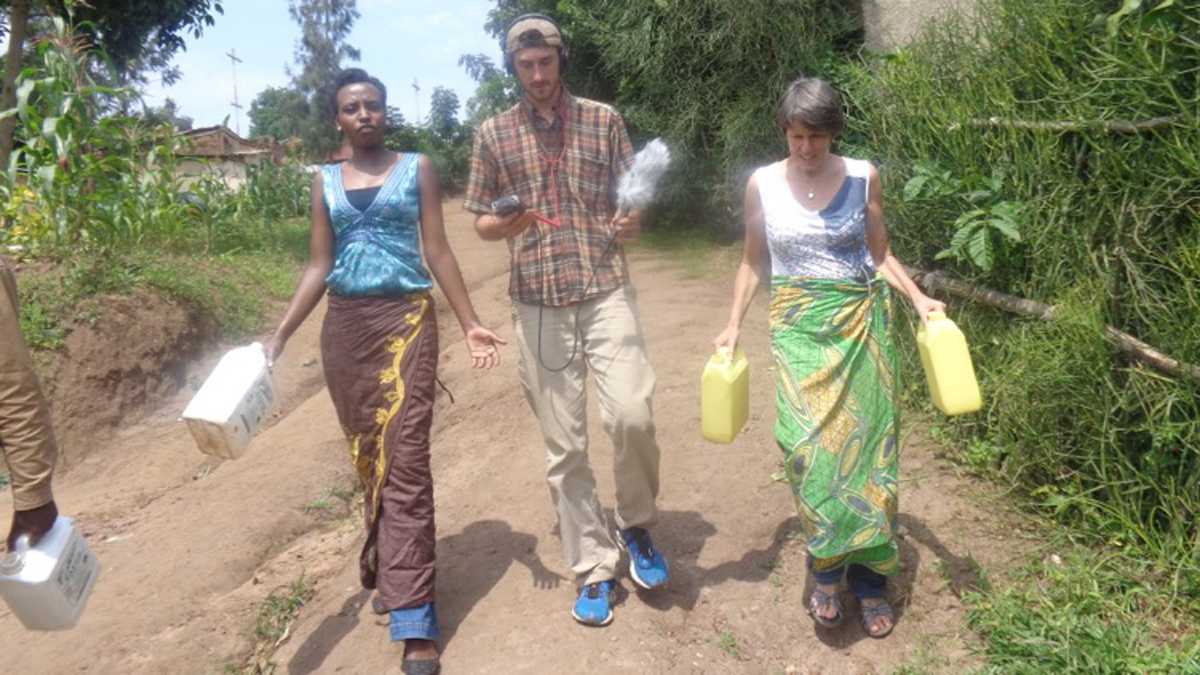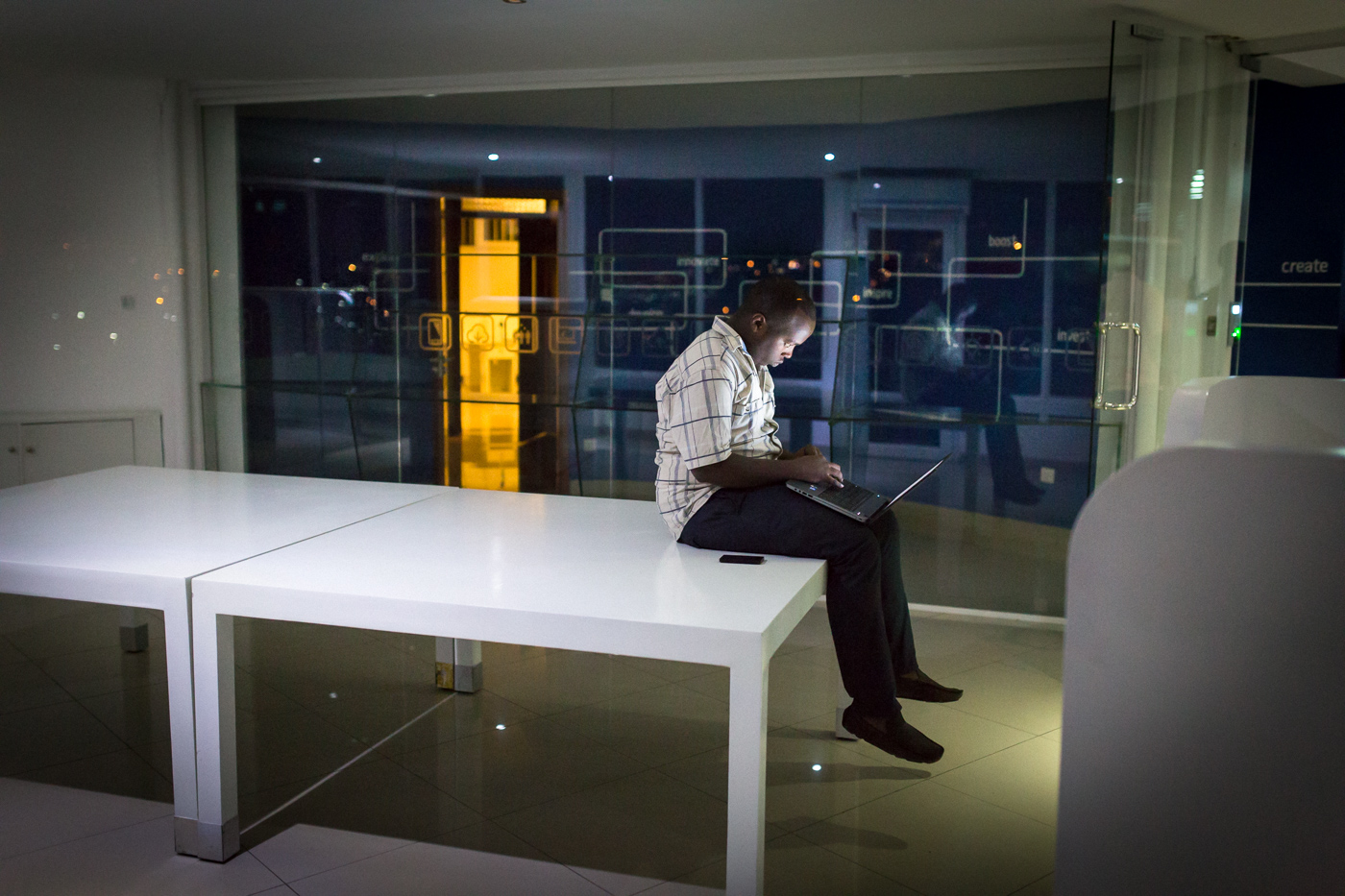
Rates of mental illness in Rwanda are significantly higher than other countries. This is largely attributed to the trauma many suffered during the 1994 genocide, which left nearly one million dead and a country full of people deeply affected emotionally.
The government is trying to respond to the need for mental health care. But resources are limited. For example, there are only six psychiatrists in the entire country.
The fierce stigma that surrounds mental illness in Rwanda is another problem that makes treatment and therapy difficult. An organization is trying to address these attitudes and issues in surprising and unconventional ways.
A tourist trip with a bigger mission
Irene Homvelt was going to spend her day fighting stigma, though the name of the tourist outing she had booked, "Culture Tours" didn't suggest that. Homvelt had been in Rwanda for two months and was about to return to her native Holland within a few days. A friend had told her about these unique tours, and their mission to raise awareness for mental health issues.
Homvelt had paid the fee of roughly $35 U.S. dollars and dressed, as instructed, in comfortable clothes. A driver took her a little outside the country's capital city, Kigali, where her hosts for the day were going to be villagers who had experienced mental illness.
Homvelt is a speech therapist back in Holland, so maybe her being a trained care-provider explains some of the interest. She said she was very curious about the psychology of people who've witnessed genocide. "They've seen a lot, they've heard a lot, they've been in a very stressful time and I like to see how they cope with it," she explained.
When Homvelt and her translator arrived in a village called Kinyinya, they parked the car in front of a row of tidy houses spaced evenly along the dirt road, with gray facades and tin roofs.
Two women greeted Homvelt; Murekatete Shemus and Umutoniwase Divine, known as "Mutoni."
Shemus tied a traditional Kitenge skirt over Homvelt's blue jeans. Kitenge skirts are long and feature colorful patterns. The three sat down for tea in Mutoni's home and began to tell their stories with the help of translator Jackie Namara.
"I had mental illness or psychosocial disability, I was on medication for seven years," said Shemus.
Shemus' entire family was killed during the genocide. She was an orphan at age nine. Her mental health issues started, she says, when the woman who took her in began mistreating her.
"I saw myself and I said I have no value and my life is just a mess, I will not amount to anything," Shemus told Homvelt.
Both Mutoni and Shemus are part of "Twinzerane." It's one of 14 peer support groups, operating under the umbrella of NOUSPR, the organization that runs the culture tours. The acronym stands for National Organization of Users and Survivors of Psychiatry in Rwanda.
Creating resources and connections
The organization is lead by Sam Badega, a lawyer and disability-rights advocate. He experienced trauma in 1994 and has felt, firsthand, the very stigma he's fighting.
NOUSPR advocates for people with mental illnesses, or "psycho-social disabilities" as Badega calls them. "Schizophrenia, bipolar disorder, autism, all those people are here," explained Badega.
The organization provides a network of support for its 1,200 members across Rwanda. Most of the 14 groups meet weekly – which helps break the terrible isolation members often face. Badega says people with mental illnesses are often shunned by their families. They're not invited to events like weddings. They can't find work. And, in some cases, it's worse.
For example, the organization recently took in a young woman with autism who'd run away from home. "When we brought her here, we stayed with her for I think 10 days. And we had discovered a lot of her problems and much of her problems were actually not because of the illness, it was the attitude of the people around her."
Badega says they found out that for years, the woman's family had beaten and harassed her. The stress became unbearable. When NOUSPR found her, she'd been wandering for three months.
They helped her clean up, gave her new clothes, and took her home. "When she come they say – 'hey this is not be possible, how can a mad person look like this? This is ... marvelous! '" recalled Badega.
One of the organization's "patient experts" began visiting the family every week. They taught the young woman basic life skills – like brushing teeth and trimming fingernails. NOUSPR's patient experts are usually people who have had similar struggles in their past.
Badega says creating better lives for people with mental illnesses starts with reducing stigma. For that to happen, people need a voice. "I'm here, see me, live with me, talk to me, reason with me, I'm also ... I'm a person first, I'm Rwandan like you, I need the services that you also need. I need the rights that you also need. I also want to contribute to the development of my country like you do."
Harvesting beans and understanding trauma
This is where the culture tours come in. Dutch tourist Irene Homvelt tried her hands at harvesting beans. Her Kitenge skirt kept falling down. "It's not working on my hips!" she joked. She helped fetch water, visited a school and cooked with her hosts.
She also got a chance to ask questions about the genocide, and how her hosts coped with losing family members and loved ones.
A few hours into her visit, Homvelt finally found out why her presence was so important to those in the dealing with mental health issues. Umutoniwase Divine, who everybody calls Mutoni, explained that the culture tours, and the presence of white people or "omozungus" in her community, have changed how people in her village treat her. She used to be treated like an outcast. "When the omuzungus started coming, they have started changing that feeling. They say 'ahhh, the family of Mutoni, it had visitors, and they were whites, and now she can even host whites,'" she explained. "So it gives a kind of status?" asked Homvelt? "Yes," replied Mutoni.
Not all of NOUSPR's groups have access to culture tourists, like Homvelt. The groups closer to Kigali mostly benefit from this program. But the organization is growing fast and culture tours farther afield are in the future.
Homvelt said she enjoyed the day; any fight against stigma is a worthy one. However, the fact that she brought prestige to her hosts, simply by virtue of being white, felt a little unsettling. "I think white people can start something, but I think it's better when Rwandese take over... otherwise it feels a little colonial...it feels like we know the best and we help you."
Sam Badega is proud of the culture tours – they work well and he's optimistic about the future. He says the days of extreme isolation are numbered for people with mental illness in Rwanda. "Those were the dark days and now we are coming to the world of reality, we are seeing the light, why should we remain with such a mindset?"
Listen to the story on The Pulse on Philadelphia's WHYY-FM.









